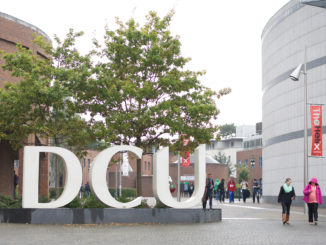
A year abroad is not always what you would think of while watching L’Auberge Espagnole, which has also been described using terms like ‘cultural phenomenon’ or ‘Erasmus generation’, but also, rather less flattering, as a bunch of people spending a year of their studies drinking and partying all the time – since they just need a pass for their exams, or even less than that.
However, a year or a semester abroad can be as challenging as it is good fun. First of all, you suddenly find yourself immersed in a different culture where people speak a different language. And they speak it very fast. Moreover, even if ‘you just need a pass,’ the bureaucracy involved in Erasmus/Study Abroad programmes can really be daunting at times.
Both DCU students abroad and international students at DCU this year experienced some problems in dealing with their documents.
“I had the problem that a module I wanted register for wasn’t on the list of modules to choose from anymore. I really needed that module, as it was compulsory for my home university. But a short e-mail to my co-ordinator was all I needed to do to be well looked after. Finally, I could choose that module (International Trade & Business) and so could everyone else,” says Christopher from Bielefeld, Germany.
Nina, also from Germany, said that “it was a bit annoying that you had to register and pick your modules manually. Erasmus students didn’t have the possibility to register online. Furthermore, timetables were not available on the portal.”
Sometimes even finding a place to stay can be problematic, as Chihiro from Tokyo, Japan, learned. “I was told that I could live on campus, but a few weeks later I was notified that it was already full. Then again, two or three days before departure, I was told that I had a place to stay on campus. It was really confusing.”
Denise, a DCU student on Erasmus in Avignon, says in France “the opening hours of the international office were strange and it was a bit of an annoyance if we needed things done urgently, e.g. our learning agreement. In DCU maybe just the co-ordinators didn’t know how the host institute operated, so it left us unprepared when we got here and made it more difficult to complete necessary paperwork.”
As to the learning agreement, an official document Erasmus students are required to complete and file, Giulia, studying in Toulouse this year, explains that the issues she encountered “mostly involved the choice of the modules in the host university: it is important to reach a minimum of 30 credits per semester (sometimes not as easy as it sounds, since European universities often evaluate their modules with of three, six or 12 credits, whereas in DCU we only have modules of 5 and 10) and to pick modules according to our major.”
However, all of them think that they are living a very enriching life experience, so it is ‘worth the pain’.
Gianluca Avagnina
Image Credit: Annemarie Kelly




Leave a Reply